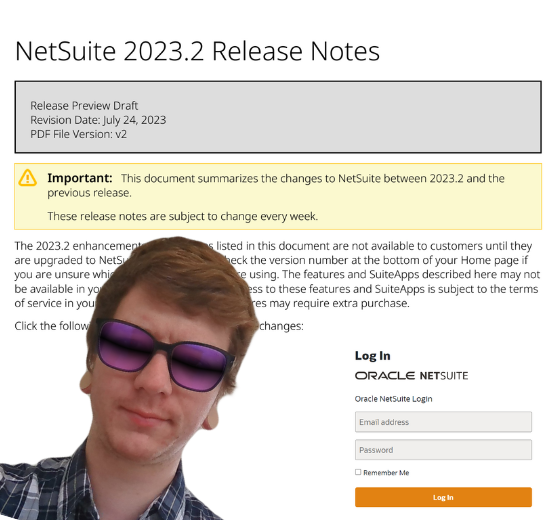Summer is here and restrictions are lifting, but how does the future really fare for the UK economy? While many businesses are entering their fourth month of unique and ever-changing trading circumstances, some have opened their doors this week and others are still waiting for restrictions to lift. It’s fair to say no company is experiencing normality behind the scenes. SMEs are busy planning, forecasting and strategising to make up for lost time and evolving at pace to survive the post-pandemic landscape, whether that’s developing new communications and sales channels, new operational policies or inventive ways to manage supply chain disruption. For this reason, robust data is required across all areas of a business – as well as the unification of various data points – if the story being told is to be meaningful and provide actionable learnings.
If, for example, multiple versions of the truth exist in different departments, a company will struggle to understand the impact of one operation on the rest of the firm, and how it can formulate comprehensive solutions that mitigate issues. Whether that be the self-isolation of staff, supply chain bottlenecks, or the ever-changing variations in demand.
We explore five areas of business that, when properly integrated using a 360-degree business management platform, will benefit firms during the foreseeable period of recovery, and drive future success and growth.
1. Financials and accounting
If recuperation is about finding efficiencies, then finance staff – from CFOs to senior accountants – will want to refine their existing view of the bigger picture. The ability to remain informed on a day-to-day, hour-by-hour basis – paired with the successful capture of data – ultimately impacts a company’s ability to effectively strategise, and make smarter decisions (when they really count). Controlled via a single platform, fully integrated, cloud solutions like Oracle NetSuite can provide finance managers with the peace of mind they need through this period of recovery. The dashboard is easy to navigate so every inch of business data is effortless to access in real-time, whenever and wherever a transaction takes place. Whether that’s a ‘profit and loss’ or ‘budget vs actual’ report customised for sharing across the business, or an end of quarter review with transactions viewable at a micro level, this popular Enterprise Resource Planning (ERP) solution makes all data drillable to assist controllers in streamlining their finance and accounting functions for a comprehensive view across the company – with transparent results.
2. Production and inventory
When it comes to unprecedented times, production and inventory management across all industry sectors continues to be affected on an on-going basis – solely dependent on the unpredictable demand for products and the ever-shifting expectations of customers. The supervision of production and inventory across all organisations must remain seamless if businesses are to successfully fulfil orders, but also not have too much stock. For these processes to run smoothly, end-to-end manufacturing software with automation at the helm gives businesses the space to optimise on cashflow and focus on the final outcome. For production management, this might include the co-ordination of materials required for production with automated quality control; for inventory management, this may involve calculating stocking levels and lead times for effective replenishment or tracing a product across its entire life cycle. Empowering businesses to get their products to market, this integrated approach can also help increase accuracy across multiple locations.
3. Sales channels and omnichannel commerce
With unified operations key to developing the best outcomes – and helping to form a better understanding of existing processes – a smarter omnichannel strategy can help businesses reach their audience in the right place at the right time, exceeding expectations. From web to mobile, to a physical store, a strategy that supports this journey – however customers wish to travel it – can help satisfy the needs of target audiences, securing that all-important sale. Solutions like NetSuite SuiteCommerce (for both B2C and B2B) utilise an integrated approach to enhance the overall experience – whether streamlining the transaction process or ensuring a more personalised service to help customers feel valued, fostering loyalty as a result. Making products easier to find across multiple devices at any given time, SuiteCommerce also helps businesses deliver engaging shopping experiences; dynamic product imaging, real-time product inventory, and product comparisons are just some of the features available. With the provision of dynamic, omnichannel commerce from a central hub, businesses can hope to drive conversions by joining the final dots in a market that remains ever competitive.
4. Customer relations and marketing
As SMEs pivot to meet the needs of a post COVID-19 economy, never has it been more important to encourage loyalty, ensuring retention for the long haul. As with omnichannel sales above, CRM and marketing also go hand in hand to aid businesses in better serving their prospective and existing customers. The integration of these operations via a single unified platform not only ensures consistent interaction with audiences but crucial access to data to help inform seamless communications. Using information stored within a CRM database, for example, marketing automation ensures correct leads are pursued at the correct time (based on visitor information, website activity, etc.) while data such as geo-location and purchase history can help drive effective campaigns with the right target in mind. With further enhanced CRM capabilities – from Salesforce Automation (SFA) to customer support – businesses can harness a solution that provides both tailored communications and valuable insight in one fell swoop.
5. Reporting and KPIs
With a 360-degree view of business operations, a cloud ERP solution like Oracle NetSuite can help companies streamline the often-intensive process of reporting and KPI analysis – a valuable time-saving tool for already time-strapped SMEs. From top-line stats to drilling down to the finer details, an integrated platform can provide automated and ad-hoc trend graphs or reports on a real-time basis, giving businesses more time to review and promptly act on such insight (and less time gathering it). Through a custom dashboard, for example, KPI portlets provide both summaries and comparisons across varying time periods for a more holistic view of the bigger picture. Armed with this information, businesses can then identify areas in need of improvement so as to learn from past activity and proceed with the right course of action.
Five areas into one
The benefits of unification in each of these standalone areas is evident, but when all are combined into a single cloud ERP architecture, a company owner has the opportunity to move their businesses in any direction they choose. A freedom they may never have had when they reliant upon on disparate software that offers many different versions of the same story. A freedom that is so very crucial to survival in the current landscape. In a business where invoicing, purchasing, marketing, stores and manufacturing (and much more, such as HR) work as one entity, data is aligned and this facilitates confident, smart decisions and a believable happy ending.
NetSuite’s SuiteSuccess Stairways illustrate the way in which you can intelligently integrate business operations and departments to unify data and obtain a single, truthful version of your company’s story. Below are three examples of sector-specific stairways, but importantly, the approach we take is to draw on our sector and software knowledge, design and implement the fundamentals and then build on the solution, step-by-step in a manner and timescale that is right for your business.
If any one of the solutions in this blog resonates with you and the challenges your business is currently facing, contact our team of experts and we will explain how we can tailor the Oracle NetSuite SuiteSuccess model to suit your firm’s needs. We serve national and global firms, across numerous sectors, and can help you reach your post-Covid business goals faster than you might think.
Keep reading

What is a NetSuite implementation partner? How do you choose one?

Technology fit for total customer service in 2024

Retail and wholesale distribution: how to improve supply chains

Ditching Sage 1000: what you need to know from businesses that have done it

6 ways AI-ready Microsoft Dynamics 365 helps chartered associations serve members

6 retail and wholesale distribution challenges and how NetSuite solves them

The most exciting features in Microsoft Dynamics 365 2023 Release Wave 2

How to manage a new NetSuite Release: one expert's update process

What’s in NetSuite Release 2023.2?

